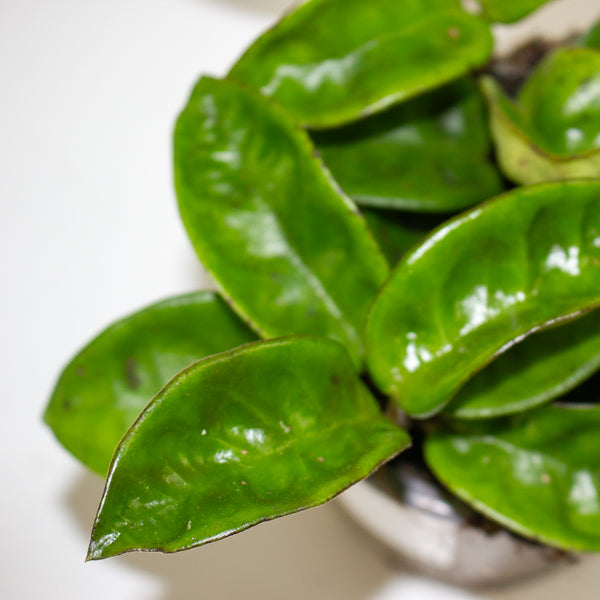1
/
of
5
Emm's Plant House
Hoya carnosa 'Krinkle 8' 9cm H27cm
Hoya carnosa 'Krinkle 8' 9cm H27cm
Regular price
£10.00 GBP
Regular price
Sale price
£10.00 GBP
Unit price
/
per
Taxes included.
Couldn't load pickup availability
Hoya carnosa ‘Krinkle 8’ is a charming variety of the classic wax plant, featuring thick, glossy leaves with deep dimples resembling crinkles. It produces clusters of fragrant, star-shaped flowers and thrives in bright, indirect light, making it a perfect hanging or shelf plant.
- Full Botanical Name: Hoya carnosa ‘Krinkle 8’
- Common Names: Wax Plant, Krinkle 8 Hoya
- Country and/or Region of Origin: Southeast Asia
- Growing Conditions in Native Habitat: Epiphytic, growing in tropical forests on trees with high humidity and bright, filtered light
Care Guide
Care Guide
Share










